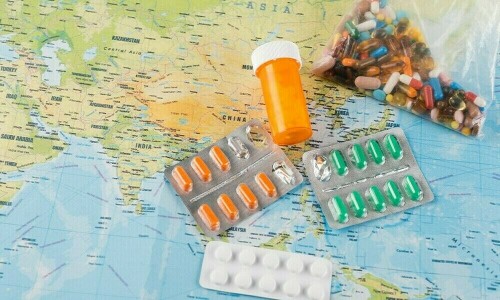Pharmaceutical Exports Surge Following Deregulation, Claims PPMA
ISLAMABAD: The Pakistan Pharmaceutical Manufacturers Association (PPMA) has reported a substantial increase in sectoral exports, claiming a 52% rise within a year, which they attribute to the government’s decision to deregulate the pharmaceutical industry.
This statement was made by PPMA Chairman Tauqeerul Haq, who, along with a delegation, met with Federal Minister for Health, Mustafa Kamal, to explore enhanced cooperation between the government and the domestic pharmaceutical sector.
Discussion Highlights
The meeting primarily addressed means of boosting collaboration and tackling the hurdles encountered by the pharmaceutical manufacturing industry. The delegation updated the minister on the sector’s accomplishments and significant advancements made recently.
Tauqeerul Haq noted that since July 2024, Pakistan has seen a 52% surge in pharmaceutical exports. He credited this expansion to the government’s policies on deregulation, which have brought stability to the sector and alleviated drug shortages in the market.
The delegation further emphasized that domestic production accounts for 90% of the medications available locally, with a considerable number meeting export standards.
Minister Kamal’s Vision for Healthcare
Kamal articulated his vision for strengthening Pakistan’s healthcare system. Acknowledging the present infrastructure’s constraints, he stated, “The government alone cannot ensure health facilities for every individual.”
He highlighted that tertiary hospitals face immense pressure because of the inadequacy of primary healthcare facilities and referral systems. “A significant portion of patients who ought to visit Basic Health Units (BHUs) are seen at major hospitals,” he pointed out.
Kamal underscored the significance of telemedicine in resolving these issues. “With a large percentage of our population already utilizing technology, telemedicine presents an opportunity to reduce the strain on hospitals. We are developing a complete strategy for its implementation,” he elaborated.
He urged the pharmaceutical industry to actively participate in promoting telemedicine, promising complete government support. Emphasizing the incorporation of technology in healthcare, the minister announced a key reform: “Utilizing NADRA’s assistance, the national ID number will now act as a patient’s Medical Record (MR) number.”
Mustafa Kamal also unveiled an ambitious plan for the future: “We plan to bring doctors and medicines directly to the public.” He recognized the shortcomings in Pakistan’s healthcare setup but reaffirmed the government’s resolve to employ technology for enhanced and accessible healthcare.
The minister highlighted the government’s commitment at both the federal and provincial levels to combat counterfeit and substandard drugs. He advocated for the use of QR codes to assure the accessibility of secure, efficacious, superior, and affordable medicines for the populace.
“Fake medicines damage the image of our nation and our businesses,” Kamal stated, encouraging pharmaceutical firms to take stringent actions.
“These positions are a responsibility, and we are all answerable,” the minister expressed. “People seek our help in distress, and this ministry is a challenge—it is an examination, and I am dedicated to passing it with honesty and accountability.”



Comments (0)
No comments yet. Be the first to comment!
Leave a Comment